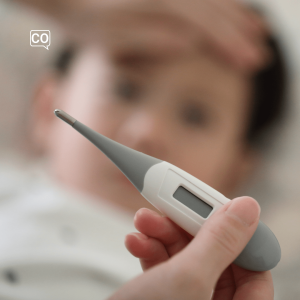Salud y bienestar

Learning goals:
- Vocabulario básico de salud. (Basic health vocabulary.)
- Expresar enfermedad y dolor. (Express sickeness and pain.)
- Vocabulario médico básico. (Basic medical vocabulary.)
- Adverbios de modo (Adverbs of manner)
Learning module 4 (A1): Describir objetos y personas. (Describing objects and people)
Recap exercises of the previous lesson
Teaching guidelines +/- 60 minutes
Core vocabulary (12)

Después de caminar tanto, necesitamos un descanso.
(After walking so much, we need a rest.)
El descanso
(The rest)

Cuidarse bien es importante para la salud.
(Taking good care of oneself is important for health.)
La salud
(Health)

La fiebre alta puede ser muy peligrosa para la salud.
(High fever can be very dangerous for health.)
La fiebre
(The fever)

El síntoma puede ser más intenso por la noche.
(The symptom can be more intense at night.)
Los síntomas
(The symptoms)

El medicamento ayuda a mejorar la salud rápidamente.
(The medicine helps to improve health quickly.)
El medicamento
(The medicine)

La doctora está relajada después de meditar en su tiempo libre.
(The doctor is relaxed after meditating in her free time.)
El doctor
(The doctor)

La alergia causa síntomas incómodos.
(The allergy causes uncomfortable symptoms.)
La alergia
(The allergy)

Ella tiene la gripe y no puede ir al trabajo.
(She has the flu and can't go to work.)
La gripe
(The flu)
Listening materials
Our listening materials implement the verbs, vocabulary and grammar topics of this lesson. Audio and video available!
A1.30.1 Diálogo: Un dolor de cabeza y de espalda
Spanish A1.30.1 A headache and back pain
Pedro y Ana hablan sobre qué partes del cuerpo sienten dolor.
(Pedro and Ana talk about which parts of the body hurt.)
Teaching guidelines +/- 15 minutes
A1.30.2 Gramática: Adverbios de modo
Spanish A1.30.2 Adverbs of manner
(Adverbs of manner describe the way or style in which something happens. These adverbs answer the question 'how?'.)
Teaching guidelines +/- 15 minutes
A1.30.3 Cuento corto: María tiene la gripe
Spanish A1.30.3 María has the flu
María tiene la gripe y va al doctor. Se siente muy mal y tiene que descansar mucho.
(María has the flu and goes to the doctor. She feels very bad and has to rest a lot.)
Teaching guidelines +/- 15 minutes
Exercises
These exercises can be done together during conversation lessons or as homework.
Exercise 1: Find the words
Instruction: Find the words, mark them and make sentences with the words.
Show answers Show hintsHints
The medicine , To cough , To hurt , The doctor , The rest , The symptoms
Answers
Score: 0/6
| Toser | (To cough) |
| El medicamento | (The medicine) |
| El descanso | (The rest) |
| Doler | (To hurt) |
| El doctor | (The doctor) |
| Los síntomas | (The symptoms) |
Exercise 2: Reorder sentences
Instruction: The words in these sentences have been shuffled! Sort them so that they make a valid sentence again and translate.
Show answers Show translationExercise 3: Translate and make sentences
Instruction: Translate the words and phrases below and use it in a conversation or text.
Show answersExercise 4: Translate and use in a sentence
Instruction: Translate and say the word out loud. Use the word in a sentence.
Show translation|
1.
Doler
|
(To hurt) |
|
2.
Ayudar
|
(To help) |
|
3.
El medicamento
|
(The medicine) |
|
4.
Los síntomas
|
(The symptoms) |
|
5.
Toser
|
(To cough) |
Exercise 6: Adverbs of manner
Instruction: Choose the correct word, read the sentence out loud and translate.
Show answers Show translationnecesariamente, rápidamente, con dificultad, mal, con cuidado, bien, fácilmente, lentamente
1. Cuidado: Tengo que toser ....
2. Difícil: Me levanto ....
3. Necesario: La alergia se trata ....
4. Lento: La fiebre baja ... después de tomar el medicamento.
5. Malo: El enfermo se siente ... por la fiebre.
6. Rápido: Los síntomas vienen ....
7. Fácil: Me pongo enfermo ....
8. Bueno: Hoy me siento .... No estoy cansada.
Exercise 7: Translate and make sentences
Instruction: Translate the words and phrases below and use it in a conversation or text.
Show answersConversation exercise
Teaching guidelines +/- 10 minutes
- Describe los síntomas de cada persona (Describe the symptoms of each person)
Example phrases:
- La persona número uno tiene dolor en el cuello. (Person number one has pain in the neck.)
- ...
Appendix 1: Extended vocabulary table
Core vocabulary (12): Verbs: 3, Adjectives: 1, Nouns: 8,
| Spanish | English |
|---|---|
| Ayudar | To help |
| Doler | To hurt |
| El descanso | The rest |
| El doctor | The doctor |
| El medicamento | The medicine |
| Enfermo | Ill |
| La alergia | The allergy |
| La fiebre | The fever |
| La gripe | The flu |
| La salud | Health |
| Los síntomas | The symptoms |
| Toser | To cough |






